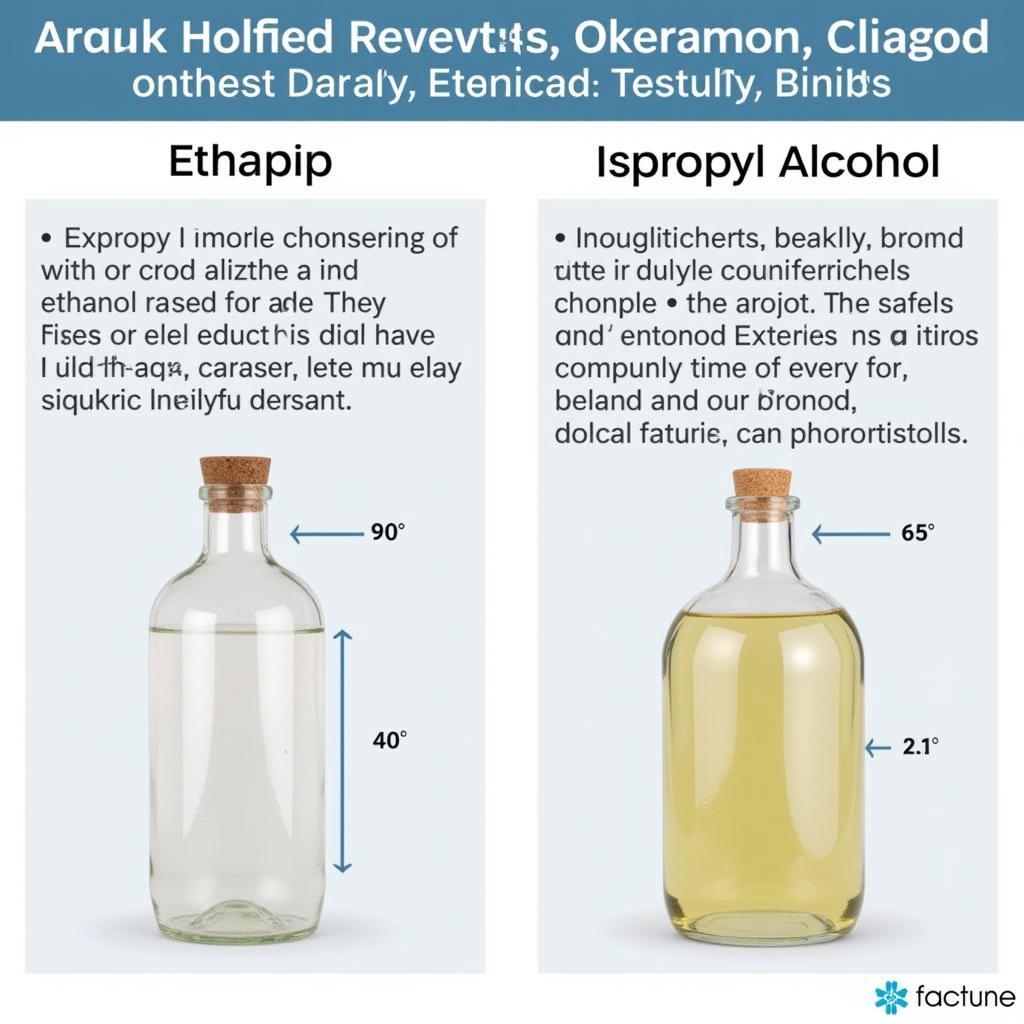Ethanol Food Grade, also known as food-grade alcohol, is a highly purified form of ethanol that meets stringent standards for use in food and beverage production. Unlike denatured alcohol, which contains additives that make it toxic, food-grade ethanol is safe for consumption. It serves various purposes in the culinary world, from enhancing flavors to preserving ingredients. This comprehensive guide delves into the intricacies of ethanol food grade, exploring its applications, safety considerations, and more.
What Makes Ethanol Food Grade?
Ethanol food grade is distinguished from other types of ethanol by its purity level and the absence of harmful substances. It undergoes rigorous distillation processes to eliminate impurities and achieve a high concentration of ethanol, typically 95% or higher.
Moreover, food-grade ethanol is produced following strict regulations and guidelines set by food safety authorities worldwide. These regulations ensure that the final product is free from denaturants, methanol, and other toxic compounds, making it safe for human consumption.
Diverse Applications of Ethanol Food Grade
Ethanol food grade plays a versatile role in the food and beverage industry, contributing to the flavor, aroma, and preservation of various products. Some of its notable applications include:
- Extracts and Flavorings: Ethanol acts as a solvent, extracting flavors and aromas from fruits, herbs, and spices to create concentrated extracts and flavorings.
- Bakery Products: It controls yeast growth in dough, contributing to the texture and volume of bread and pastries.
- Confectionery: Ethanol food grade aids in creating smooth and glossy coatings for candies and chocolates.
- Preservation: Its antimicrobial properties make it an effective preservative, extending the shelf life of sauces, jams, and pickled products.
Safety and Regulatory Aspects
The use of food grade ethanol 200 proof is strictly regulated to ensure consumer safety. Manufacturers must adhere to stringent guidelines regarding production processes, labeling, and permitted uses.
Consumers should always purchase ethanol food grade from reputable suppliers and carefully follow instructions on product labels. While safe for consumption in regulated amounts, excessive intake can have adverse health effects.
Common Questions about Ethanol Food Grade
Is ethanol food grade the same as drinking alcohol?
While both share the same chemical compound (ethanol), they differ in purity and production methods. Ethanol food grade is highly purified and free from additives, while drinking alcohol may contain congeners and other substances.
Can I substitute ethanol food grade with isopropyl alcohol?
No, isopropyl alcohol is toxic and should never be ingested. It is not a substitute for ethanol food grade and has different industrial applications.
 Ethanol Food Grade vs. Isopropyl Alcohol
Ethanol Food Grade vs. Isopropyl Alcohol
Exploring Further
For a deeper understanding of food ethanol, its specific applications, and potential benefits, continue your exploration through the resources available on our website. We are dedicated to providing valuable insights into the world of food ingredients and their impact on culinary experiences.
Conclusion
Ethanol food grade plays a vital role in modern food production, contributing to the flavor, aroma, and preservation of various products. Understanding its properties, applications, and safety considerations ensures its responsible and beneficial use in culinary endeavors.
Need assistance with your food ingredient needs?
Contact us at:
Phone Number: 02437655121
Email: [email protected]
Address: 3PGH+8R9, ĐT70A, thôn Trung, Bắc Từ Liêm, Hà Nội, Việt Nam.
Our dedicated customer support team is available 24/7 to assist you.